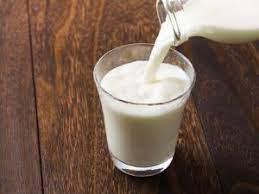Milk, particularly low-fat or skim milk, can be a part of a healthy diet for individuals with fatty liver disease, but it’s important to consume it in moderation and as part of a balanced diet. Fatty liver disease can be of two types: alcoholic fatty liver disease (AFLD) and non-alcoholic fatty liver disease (NAFLD).
For individuals with NAFLD, which is more common and not related to alcohol consumption, dietary changes are an important part of managing the condition. Here’s how milk fits into the picture:
Low-Fat Dairy for fatty liver
Milk is a valuable source of calcium and protein, both essential for overall health. However, individuals with fatty liver disease should choose low-fat or skim milk to reduce saturated fat intake. Saturated fats can exacerbate liver issues, making it important to limit their consumption.
Sugar Content
Flavored or sweetened milk products often contain added sugars, which can contribute to the progression of this disease. High sugar intake is linked to increased fat accumulation in the liver, so opting for unsweetened or minimally sweetened milk is recommended.
Portion Control
While milk provides important nutrients, consuming it in excess can lead to increased calorie intake and potential weight gain—both risk factors for NAFLD. Drinking milk in moderation as part of a well-structured diet is crucial.
Balanced Diet
Milk should be incorporated into a diverse diet that includes fruits, vegetables, lean proteins, and whole grains. A well-balanced diet supports liver function and overall health. Simply consuming low-fat milk alone is not enough to manage this disease; it must be part of a broader, nutritious eating plan.
Additional Considerations
The severity and specific characteristics of fatty liver disease vary among individuals, so dietary recommendations should be tailored accordingly. Beyond diet, lifestyle changes such as regular physical activity and maintaining a healthy weight play a significant role in managing this disease. Engaging in at least 150 minutes of moderate exercise per week can help improve liver health and prevent further complications.
By making informed dietary choices, including the mindful consumption of milk, individuals with this disease can take proactive steps toward better liver health.
Is milk good for individuals with fatty liver disease?
Yes, low-fat or skim milk can be part of a healthy diet for individuals with fatty liver disease, but it should be consumed in moderation.
Why should people with fatty liver disease avoid flavored or sweetened milk?
Flavored milk contains added sugars, which can contribute to fat accumulation in the liver and worsen fatty liver disease.
How can individuals with fatty liver disease incorporate milk into their diet?
They should choose low-fat or skim milk, consume it in moderation, and include it as part of a balanced diet with fruits, vegetables, lean proteins, and whole grains.

